
Welcome to Florida, where the stunning beaches and warm weather are a sight to behold. Though winters are short and windy, preparing your lawn for the colder weather ahead is still essential. That’s why we’ve put together these 10 winter lawn care tips for Florida, so you can rest assured your lawn will look its best all season long.
By taking the time to winterize your lawn, you’ll be setting yourself up for success when it comes time to tackle your spring lawn care routine. So grab a cup of hot cocoa and read on to learn how to give your Florida lawn the love and care it deserves.
1. Avoid Walking on the Lawn
It’s important to be mindful of the impact foot traffic can have on your lawn during winter. While running around and playing in cooler temperatures may be tempting, walking on the grass can lead to damage and soil compaction.
When warm-season grasses go dormant in the winter, they don’t recover from damage as quickly as they would during the growing season. Unfortunately, any damage to your lawn during winter can have a lasting impact.
So, think twice the next time you’re tempted to walk across your lawn during winter. Remember, your grass is taking a well-deserved break during this time, and limiting foot traffic will help ensure it’s in top shape when the growing season rolls around again.
2. Clean Up Your Yard
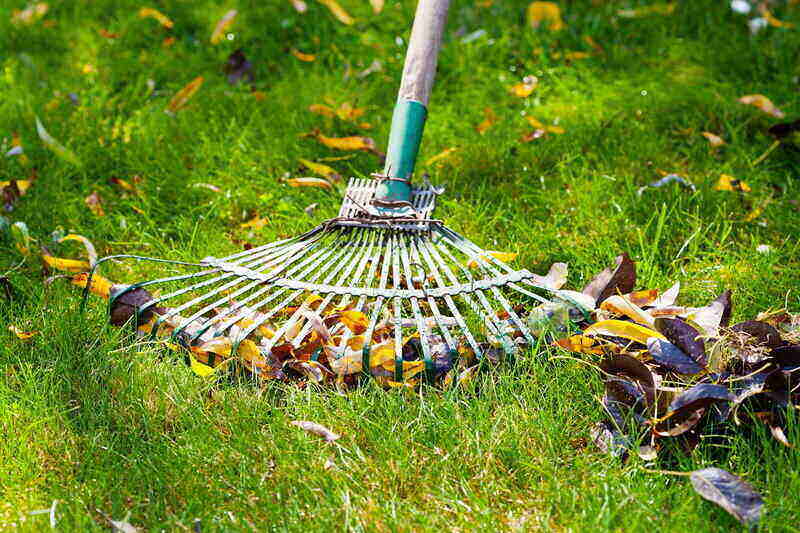
Winter in Florida may not bring the same level of leaf fall as other parts of the country, but keeping your yard tidy is still vital.
When leaves and other debris accumulate on your property, they can create a cozy habitat for Florida pests. In addition, anything you leave on your lawn during the winter months can suffocate your grass and prevent it from getting the air and sunlight it needs to thrive.
So what’s a homeowner to do? It’s simple: keep your yard clean and tidy! This means raking up any leaves or debris that may have fallen and removing any toys or other items that might be lying around.
Pro Tip: In the aftermath of a hurricane, cleaning up can be a daunting and emotional task. If you are looking for guidance on how to clean up after a hurricane, we invite you to check out our comprehensive guide.
3. Keep Watering
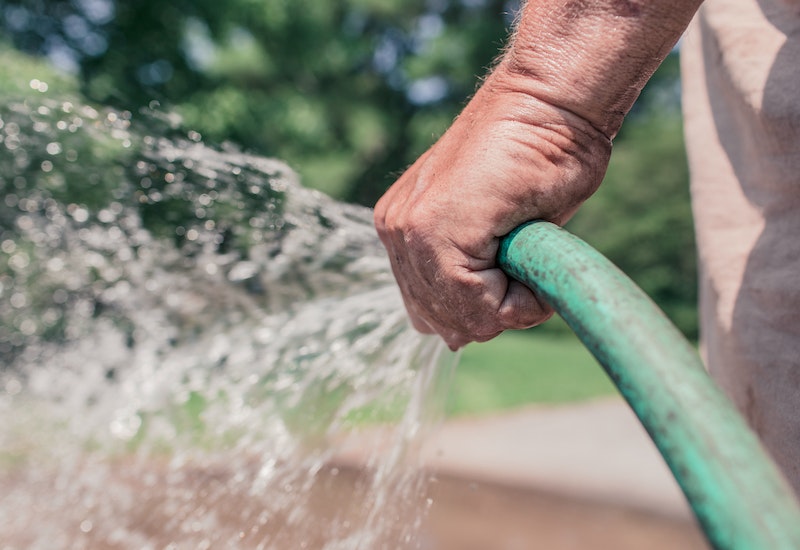
Even though warm-season grasses go into dormancy during winter in North Florida, it’s still essential to give your lawn a drink of water now and then.
Tip: Watering at least once every 1 to 2 weeks will help keep your grass roots healthy and hydrated, ensuring that your lawn is in top shape when the growing season comes back.
Pay attention to the weather forecast when planning your watering schedule. For example, if there’s any rain in the forecast, push back your watering plans to avoid overwatering your lawn, which can lead to fungal diseases.
Pro Tip: To determine the optimal watering duration, place cans where your sprinklers spray water and mark how long it takes to accumulate ½ to ¾ inch of water. Use that time measure to leave your system running the next time you water your lawn. See our lawn watering tips for Florida to learn more.
4. Winterize the Irrigation System
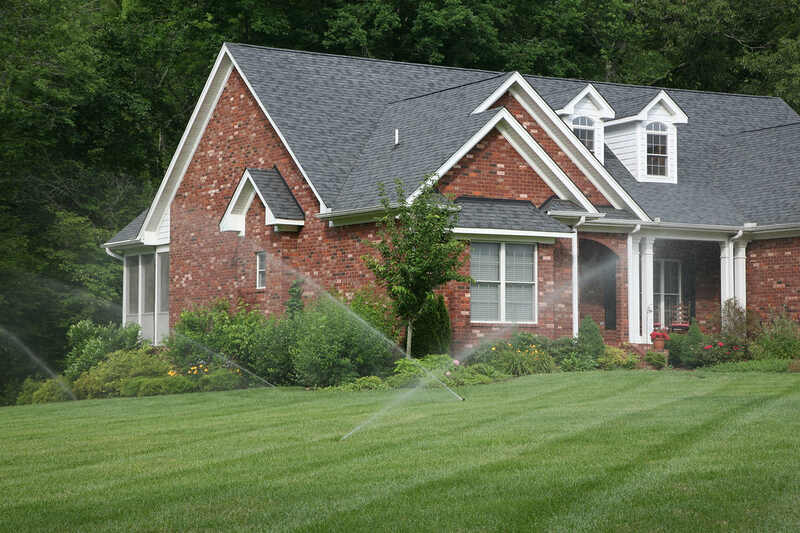
While winters in Florida are generally mild, occasional freezes can still occur, and it’s important to take steps to protect your irrigation system from damage, especially when there is a freeze in the forecast.
To winterize your irrigation system during winter, follow these steps:
- Look out for damaged parts and leaks.
- Turn off the water at the main supply, turn off the stop and waste valve, and drain and shut off backflow valves.
- Let the system drain to remove any remaining water in the pipes.
- Disconnect any above-ground parts of the sprinkler system, such as hoses and sprinkler heads.
- Cover above-ground parts with insulation tape or even straw to protect them from the cold.
By taking these steps, you can help prevent damage to your irrigation system and ensure it functions properly when you need it again.
5. Don’t Put the Mower Away
In Florida, mowing your lawn is a never-ending event. However, during winter, the grass slows down its growth, meaning you can put the mower away for a little while longer than usual, but unfortunately, not for the entire season.
Aim to mow every three to four weeks to keep your lawn looking its best during winter, depending on the growth rate. Pay attention to the height of the grass blades to know when it’s time to cut, making sure never to cut more than one-third of the blade length.
It’s also recommended to mow your lawn on the higher end of its suggested range during cooler temperatures. Keeping your grass longer than usual will give the soil extra protection against the elements.
Pro Tip: Leaving grass clippings on the lawn instead of bagging them can help feed it by providing nutrients as they decompose. It also helps reduce yard waste in landfills.
6. Fertilizer Dos and Don’ts
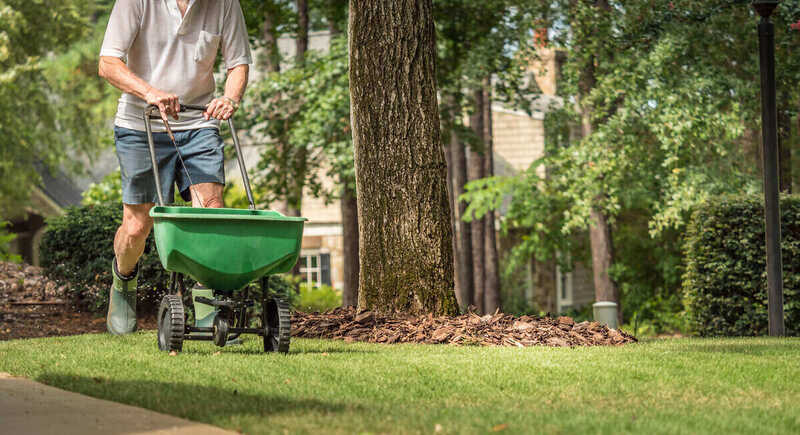
While it may be tempting to try greening up your lawn after it goes dormant, doing so can do more harm than good. Winter is not the best time to fertilize your lawn in Florida.
When to fertilize the lawn in Florida? It’s recommended to fertilize in the spring and fall, and the last recommended time to fertilize in Florida is between September and October (except for South Florida, which needs fertilizing almost all year round). This will give your lawn the nutrients it needs to thrive during the cooler months without causing any harm.
One of the biggest “dos” of winter fertilization in Florida is to resist the temptation to fertilize after a freeze. When plants experience a loss of growing tissue and leaves due to frost damage, they become more vulnerable and may struggle to take up the nutrients from fertilizers. So be patient!
7. Give Your Lawn a Makeover
Giving your lawn a makeover by painting it with turf colorants is a great way to keep it looking green and lush during the winter months in Florida. This is especially useful for lawns that may have experienced damage or stress, as the paint can help cover up any unsightly brown spots or dull patches.
In addition, grass paint is safe for people and pets, affordable, and easy to apply: Use a pump sprayer and let it dry completely.
Note: Grass paint is not a permanent solution nor a replacement for proper lawn care. However, it can be a helpful trick to keep your lawn looking its best until it recovers its natural color in the springtime.
8. Consider Overseeding
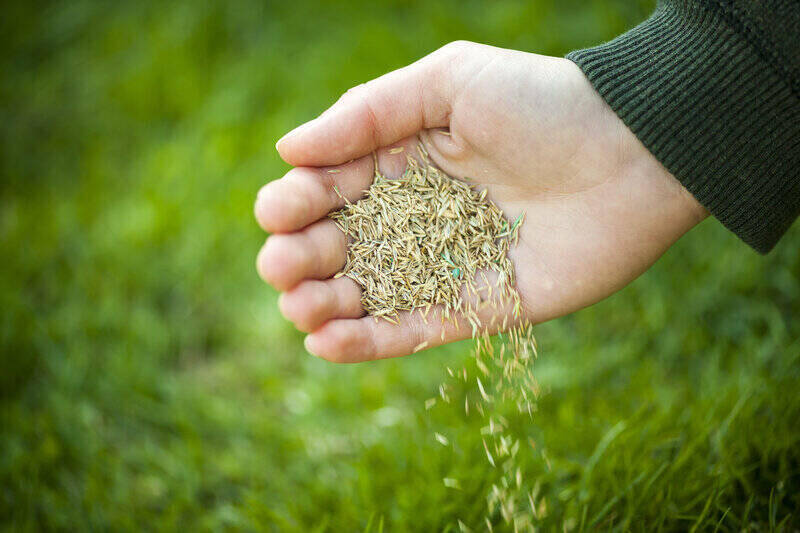
Overseeding your lawn is another excellent way to maintain a healthy green lawn year-round. The process of overseeding involves spreading grass seeds from a type of grass that grows in the winter, known as cool-season grasses.
For example, overseeding Bermudagrass with ryegrass can help fill in any bare spots in your lawn, increase density, and improve the overall appearance of your lawn.
The best time to overseed your lawn in Florida is when daytime temperatures are consistently in the low to mid-70 F range. For Northern Florida, this is typically from October to November — in the fall. However, for those in Central Florida, overseeding can be done from October to early December.
9. Battle Winter Weeds
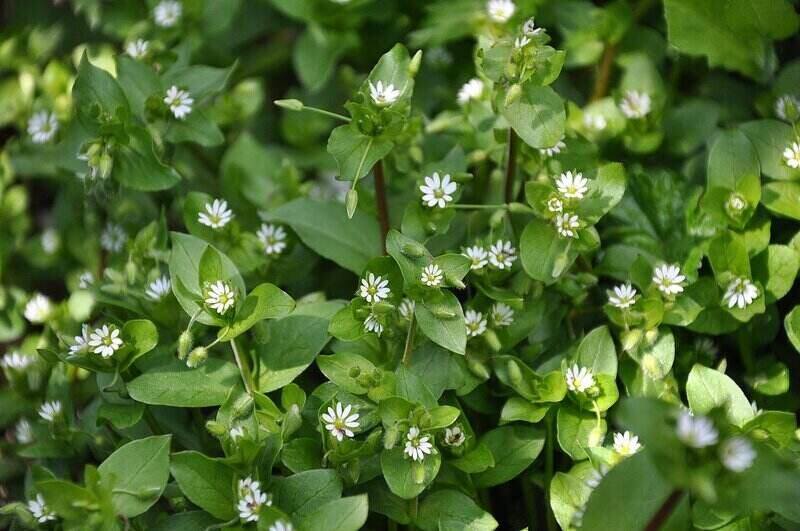
Just like with mowing, winter in Florida does not mean you can stop worrying about weeds. Weed control is a year-round battle in Florida. Here are some of the most common winter weeds in Florida to be on the lookout for:
- Lawn burweed
- Chickweed
- Henbit
- Annual bluegrass
The best way to prevent these weeds from taking over your lawn is by applying pre-emergent herbicides in the fall. However, if you missed that opportunity, there are still options for controlling winter weeds:
- Hand-pulling is a viable option for smaller areas with isolated patches of weeds.
- Spot-treating with a post-emergent herbicide can effectively solve more widespread infestations.
- Use herbicides responsibly and follow the instructions carefully to avoid harming your lawn or other plants.
10. Watch Out for Lawn Diseases
Dormant grasses are particularly vulnerable to lawn disease during winter, so it’s important to keep a watchful eye for any signs of trouble. The best way to avoid lawn diseases during winter is by maintaining good lawn care practices throughout the year. This includes proper mowing, fertilization, and especially avoiding overwatering.
However, even with the best care, lawn diseases can still occur. Many fungi thrive in cooler temperatures and humid weather, making winter a prime time for lawn diseases to take hold. Look for any signs of disease, such as brown patches, discolored areas, or thinning grass. Here are some tips on how to treat fungal diseases in your lawn:
- Identify the type of fungal disease since different diseases require different treatments.
- Adjust watering habits, and make sure to water your lawn only as needed and avoid watering in the evening.
- Avoid walking and mowing over the area to contain it.
- Use fungicides for the specific disease.
- Consider professional help.
FAQ About Winter Lawn Care Tips
During winter in Florida, water your lawn once every week or two, depending on rainfall, since water evaporation slows down with the cold weather. In addition, you should avoid overwatering to prevent fungal diseases.
Yes, you should continue cutting your grass during winter in Florida. While grass growth may slow during the cooler season, it doesn’t typically stop.
To maintain a healthy lawn during winter, continue mowing at the recommended height for your Florida grass type. Generally, mowing at the highest recommended height is best to give the soil more insulation and protect the roots from cooler temperatures.
No, you should not fertilize your lawn during winter in Florida, except if you’re in South Florida. Instead, it’s recommended to fertilize during the active growing period when the grass can absorb the nutrients.
Fertilizer applied when the grass is not growing is a waste of time and money, as the grass will not be able to use the nutrients effectively, and it can lead to runoff and environmental concerns.
Bring in the Pros
While the cooler weather may slow down grass growth and make your lawn more vulnerable to diseases, following these winter lawn care tips can help keep your Florida lawn looking its best.
And if you need further assistance or guidance with your winter lawn care, don’t hesitate to consult a lawn care professional near you. Our network of reliable lawn care professionals spans across numerous cities, including Orlando, Jacksonville, Tampa, and Miami.
Main Image Credit: Pxhere